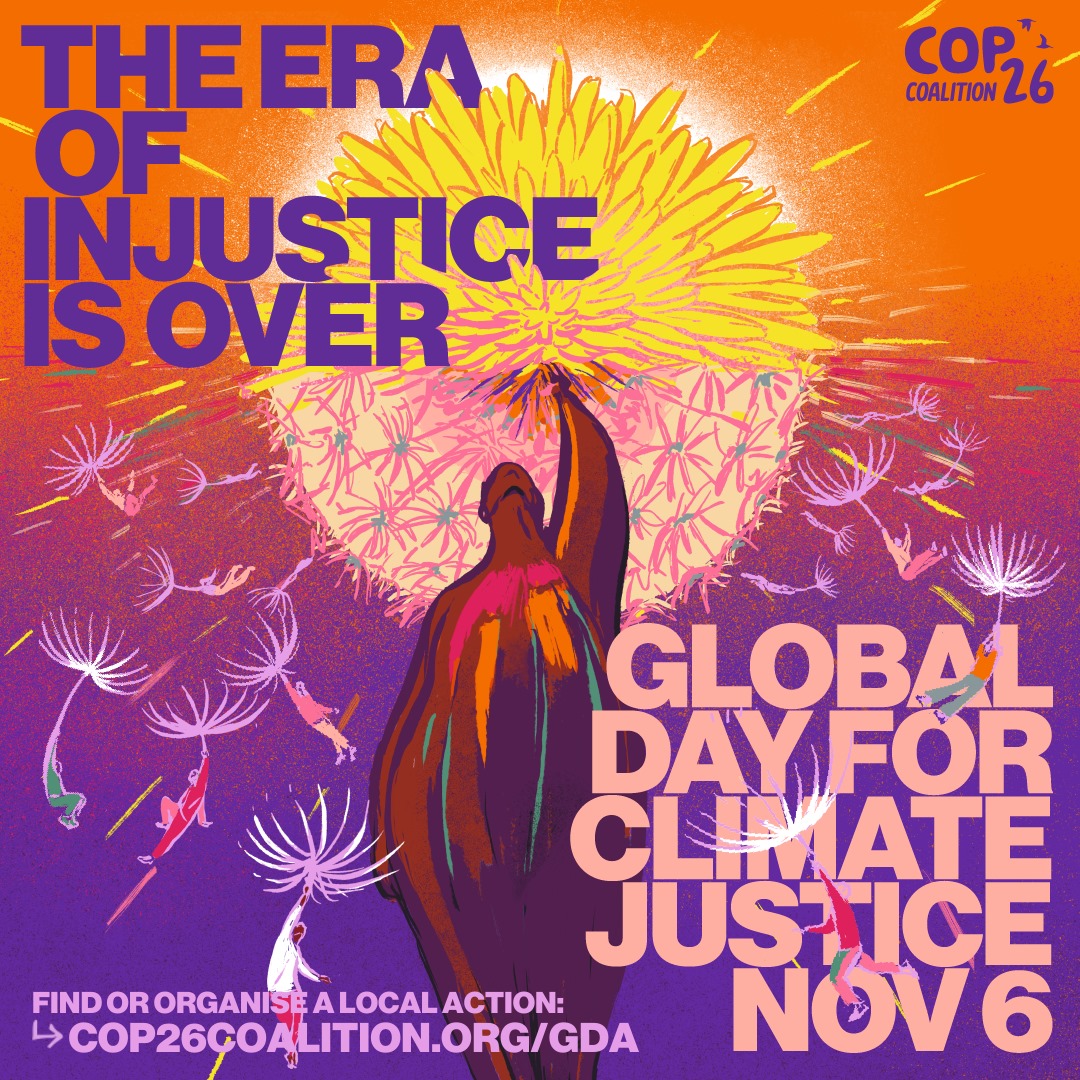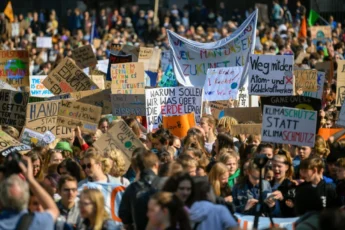
by TRANSNATIONAL SOCIAL STRIKE
We will take part in the Global Day of Action for climate justice that has been called by the Cop26 Coalition for November 6th, as well as in the “People Summit” happening the following days. As in the G20 in Rome, governments’ representatives are discussing how to secure that the ecological transition becomes a field for capital accumulation and how profits can be assured within the necessary adaptation to climate change.
Their opponent is a transnational movement that, through marches and climate strikes, has been affirming that to achieve climate justice, the whole capitalist system must be overcome. So, on one side there is the attempt to secure business as usual on new ‘green’ grounds, certified by experts and massively financed by the EU and States’ plans for a green transition; on the other, there is the pressure of strikers, workers, and activists from all over the world struggling to collectively transform the condition of production and social reproduction.
In Glasgow, world leaders will decide who in the process will be sacrificed and who will be saved, who will make profit and who will become even poorer. The impact of the national plans of reconstruction will not be homogeneous transnationally. If climate justice must be achieved it cannot be a local justice only for some: fighting transnationally is now more important than ever to overcome the hierarchies that are at the core of the “green” deals.
Workers will be more and more pitted against one another depending on the sector they are employed in, the region they come from, or the wage they get. Projects of energetic rehabilitation of public housing buildings risk to cause mass evictions and establish a hierarchy between “green” housing for better off people and second-class public housing. A fight for climate justice cannot but be a fight for equal wages and transnational welfare.
The supposedly natural duty of women to care-work risks to be even strengthened by the narrations of the necessity to defend nature or the labelling of care-work as a “green job”: transition plans are patriarchal plans strengthening the sexual division of labor.
New Green policies prescribe how to manage and exploit migrant movements, who are seen as an asset of the “green” economy. The category of “environmental migrant” is one more juridical category that creates divisions and ties the destiny of migrants to the flexible needs of the labor market. Only by expanding migrants claims for freedom of movement we can oppose the plans of their unjust transition.
Some weeks ago, Bulgarian miners went on strike because they refuse to get fired due to the gradual closure of the plants, and thus pay the cost of the transition to less polluting ways of production. In Glasgow, rail workers, school cleaners, garbage collectors, and janitors are joining the climate strike and leverage on the visibility that provides to strengthen their position in ongoing negotiations over pay. Struggles are multiplying, and this presents the problem of expanding, giving continuity and strength to a transnational communication as the Cop26 coalition is doing. The climate strike can catalyze struggles which otherwise risk remaining dispersed and isolated, contest society, and overcome hierarchies between countries and regions, workplaces, sexes and statuses.
For all these reasons we will be part of the Global Day of Action on the 6th of November called by the Cop26 Coalition!





